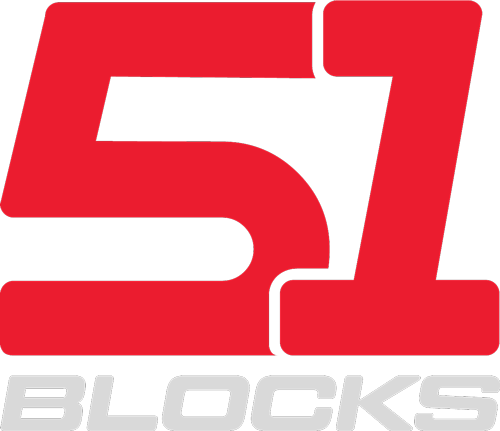XML Schema vs. JSON Schema Markup: What to Use?
When you are designing and developing a new website, it is important that you use the proper schema markup to display the right content, information, and microdata to the search engines as well as your potential clients in the results. Using schema will allow the search engines to show users that a particular page is the best example online of what they need.
The first point, though, that needs to be defined is what schema markup is, how it and microdata should be implemented on each page of your site, and the existence of helps tools designed by search engines such as, for example, the Google schema checker and the schema markup tester.
What Is Schema Markup?
Schema markup is a type of code that you add to your website that will help the search engines provide more informative results for users who are searching for your products or services. It uses a unique semantic vocabulary in schema microdata format, and “schema” is a generic concept when referring to structured data markup. The way that schema markup works is similar to that of rich snippets, very commonly used on all types of websites.
Rich snippets in a result listing show pieces of information such a a star rating and the number of reviews a company or other website item has received. Schema markup takes the concepts found in rich snippets of a page to the next level using schema microdata.
Schema markup tells the search engine results page to display certain bits of information that you think will be most relevant and most important for your potential clients to know. A rich snippet can be helpful, but when you use schema markup, the content will be that much richer.
There are two primary types of schema markup that are utilized in website development: JSON and XML. We will look at both of these in turn so that you can decide which is right for you, which allows you to add the proper structured data to each of the web pages on your site, and which will be the most useful schema for SEO when it comes to the placement of a web page in the search results.
As the primary search engine that most SEO companies use for their analytics, Google even developed their own Google structured data tool to ensure that you get the right information into the microdata on each page for optimum search results. For example, sets of elements on a web page can be marked with itemprop attributes that will result in an itemprop name associated with a value. An itemprop name or other value can be linked to or embed external resources to further assist your SEO.
JSON schema or XML? What to use?
Which one is faster? Which of the two is the best for my project? According to experts, they both are effective tools to use for your web pages. What most people do not understand is that they are not entirely comparable, and their variance is as wide as comparing a supercar and a mountain bike, for example. They both get you home at the end of the day, but JSON and XML Schema markup are very different and have varied areas of applicability.
Proper schema SEO will rely on the foundation that you (or your web developer) have chosen the right schema markup to accomplish your goals. You will want to ensure that the markup you choose enables you to have the right microdata present for the search engines, it encourages great local business schema, the structured data is appropriate, and it will help you achieve the highest possible ranking in the search results.
What is XML Schema Markup?
The XML Schema is a World Wide Web consortium recommendation that normally works by specifying how to formally describe the elements in an Extensible Markup Language document or XML. This kind of description can be used to authenticate that each item of the content created in a document adheres to the description of the element in which the content is to be placed. The XSD or XML Schema markup was approved by W3c standard back in April 2012.
XML schema markup has complex definition capability and good tool support. When it comes to working between teams and sharing data, the elements need to be accessible and usable by all teams. You need to use schema that suits the needs of all those involved. The XML schema markup languages are complex enough to standardize the ways in which schemas are defined.
What is JSON?
JSON or the JavaScript Object Notation is a minimal but readable format that’s used for structuring data. Its main function is to transmit data between a server and a web application as a substitute for XML Schema. Users will use JSON to organize and store their website content created with the CMS.
JSON is a more user-friendly and natural option when it comes to opening the editor and making changes to the content, information, schema microdata, etc. on the page. The overall structure and datatypes are simpler (though it can handle more complex data structures), and during the Web 2.0 era, certain prominent developers began using JSON with other programming languages so its popularity grew.
JSON schemas are simple as well and can be used to validate the structure and content of a JSON document using validation routines in many common languages. JSON can also be transformed to JSON LD so that linked data can be serialized in a similar way to the traditional JSON.
What is the Difference between XML and JSON?
Both JSON and XML are tools that can be used to transmit the same kind of content and schema microdata, making them almost incomparable. However, the better option largely depends on what the user requires it for and what will best accomplish the goals you have for search engines and your result rankings.
XML
The purpose of XML schema is to provide the defining structure of the building blocks of a XML document. These include the elements and attributes appearing in the document, child elements (number and order of), data types for elements and attributes, and both default and fixed values for those elements and attributes.
There are hundreds of standardized XML formats floating around in daily use defined by XML schemas. It is important to be familiar with XML schema so that you are able to understand the structure of a XML document, to validate the correctness of data, and to edit schema files without learning a new language.
XML has better tooling functionality that can be used for verifying Schema. It also has built in support for namespaces and can be more easily restructured into HTML code. XML can also be queried using exceptional query language, for example XPath.
With the ability to reuse schema in other schemas, create new data types having the standardized ones in place already, and reference various other schemas in the same document, XML schema is all-around and provides a variety of advantages.
JSON
JSON has pretty printers, and in most users’ experiences, it is much easier for people to use. It also has the best format, especially when one end of the transfer is written in JavaScript. JSON has almost no legacy, meaning that the chances of being forced to work with malformed JSON content and microdata are minimal.
It’s hard to make a comparison of the best choice between the two since one can be used to store anything that can also be stored in the other. Usability and tooling are truly the best criteria to be used to distinguish between them and choose the right option when you want to use schema on your site.
Our verdict lies with JSON, and we’ve built a handy dandy JSON schema generator if you want to add it to your site! We also have a full list of search engine optimization services, for example local SEO, that we are happy to discuss with you and demonstrate the importance of SEO, keyword-rich content, web development, and other elements to search engines.
Contact the Search Engine Optimization and Schema Markup Experts
At 51Blocks, we have the experience, knowledge, and skills needed to properly optimize your website, have the right microdata displayed for each web page, and get you the highest possible rankings on the SERPs.
Whether the information displaying for a page is inaccurate or vague or you need a better example of the type of work we can accomplish for your company, the SEO experts at 51Blocks are here to help. Contact us today for more information on all of our services.
You have the opportunity to become one of our white label partners because we are the premier white label SEO partnership and reseller program. When you need campaign results, our support team is here to help you meet those goals. From top ranking in the search engine results pages to email marketing to social media advertising, we can do it all so that your company can reap the benefits of success online.
As our white label partner, you will always know where your campaign stands and how well you are doing in the search engines. We are completely transparent and are always happy to talk with you if you have questions or concerns. Through extensive research and discovery, we will develop the best strategy to achieve your campaign goals, and we take pride in helping our clients succeed. Your success is our success! Contact us to learn more about our partnership program.
All rights reserved, 51Blocks LLC.






